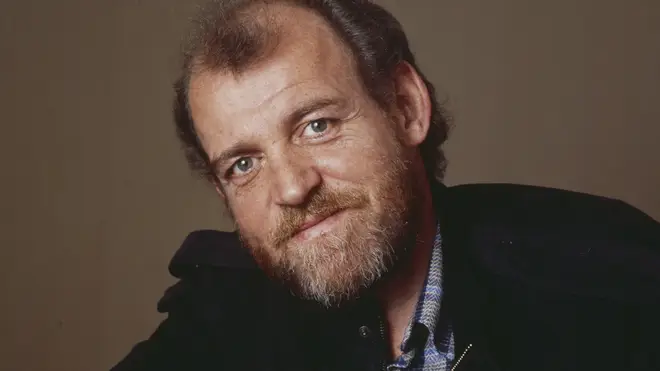“Delta Lady” – Joe Cocker

Released in 1969, Joe Cocker’s rendition of “Delta Lady” became one of his defining songs, encapsulating his unique vocal style and ability to convey deep emotion through music. Written by Leon Russell, the song was inspired by singer Rita Coolidge, whom Russell had a romantic relationship with at the time. Russell’s songwriting, combined with Cocker’s powerful interpretation, brought “Delta Lady” to life as a passionate, soulful anthem dedicated to the free-spirited and captivating women of the American South. The song’s blend of Southern rock, blues, and soul, paired with Cocker’s raspy, emotive delivery, made it a standout track of the late 1960s, cementing Cocker’s place in the pantheon of rock and blues singers.
At its core, “Delta Lady” is a celebration of a woman who embodies the beauty and spirit of the South. The “Delta” in the title refers to the Mississippi Delta, a region known for its rich history, culture, and significance in the development of American music, particularly the blues. The “Lady” in question is Rita Coolidge, whose allure and grace captured Russell’s imagination. In the song, she is portrayed as an irresistible force of nature—fierce, independent, and sensual. The lyrics describe a deep yearning for this woman, as Cocker sings about longing to be close to her, to bask in her beauty and spirit. The song’s refrain, “Oh, you’re my Delta Lady,” becomes a heartfelt declaration of admiration, making the woman in question both a muse and an ideal.
Musically, “Delta Lady” is a potent mix of rock, soul, and blues influences. The song opens with a driving piano riff, played by Leon Russell himself, which sets the tone for the rest of the track. The arrangement is lush and full, with a rhythm section that propels the song forward, horns that punctuate key moments, and a backing choir that adds layers of richness to the sound. The horns and piano provide a distinctly Southern feel to the song, while the gospel-inflected backing vocals evoke a sense of spirituality and raw emotion. These elements combine to create a sound that is both soulful and electrifying, capturing the essence of the Mississippi Delta while also showcasing Cocker’s raw vocal power.
Joe Cocker’s performance of “Delta Lady” is central to the song’s impact. Known for his gravelly voice and emotionally charged delivery, Cocker brings a sense of urgency and longing to the song. His voice strains and soars with passion as he sings, giving the listener the impression that he is deeply connected to the woman he is singing about. Cocker’s ability to channel intense emotion through his voice was one of his greatest strengths as a performer, and in “Delta Lady,” he fully embraces the role of the lovestruck admirer. His phrasing and vocal inflections bring the song’s lyrics to life, turning what could have been a simple love song into a powerful ode to desire and admiration.

While Leon Russell originally wrote “Delta Lady” as a personal tribute to Rita Coolidge, Joe Cocker’s interpretation of the song transcends the specific relationship that inspired it. Cocker’s version of the song taps into a more universal longing for connection and admiration of beauty. The song’s themes of passion, longing, and the celebration of a strong, independent woman resonate with listeners regardless of the specifics of Russell and Coolidge’s relationship. In this way, “Delta Lady” becomes more than just a tribute to one woman—it becomes a timeless expression of love and admiration.
“Delta Lady” was released as a single and appeared on Cocker’s second studio album, Joe Cocker!, in 1969. While it wasn’t Cocker’s biggest hit, it became one of his signature songs and a fan favorite. The song’s success helped solidify Cocker’s reputation as one of the most distinctive voices in rock and soul music, following his breakthrough performance at the Woodstock Festival earlier that year. “Delta Lady” also marked the beginning of a long and fruitful collaboration between Cocker and Leon Russell, who would go on to work together on several other projects, including the famous Mad Dogs & Englishmen tour.

The song also holds a special place in the history of Southern rock and soul music. “Delta Lady” reflects the influence of the American South on rock and roll, particularly the blues and gospel traditions that originated in the region. The song’s celebration of Southern culture and beauty, combined with its blend of musical styles, makes it a quintessential example of the Southern rock sound that was emerging at the time. Cocker’s soulful interpretation of the song helped bring Southern music to a broader audience, showcasing the region’s unique musical heritage to the world.
In the decades since its release, “Delta Lady” has continued to resonate with listeners as a passionate and heartfelt tribute to beauty, love, and the spirit of the American South. The song remains one of Joe Cocker’s most enduring tracks, a testament to his ability to infuse his music with raw emotion and sincerity. It also stands as a testament to Leon Russell’s songwriting talent and his ability to capture the essence of a person and a place in his music. Together, Russell and Cocker created a song that is both deeply personal and universally relatable, a true classic of rock and soul.

In conclusion, “Delta Lady” by Joe Cocker is more than just a love song—it is a celebration of Southern culture, beauty, and individuality. Through Cocker’s powerful vocal delivery and Leon Russell’s evocative lyrics and musical arrangement, the song captures the essence of desire and admiration in a way that is both personal and universal. It remains a beloved track that showcases the talents of two of the most distinctive artists of the 1960s and 1970s, and it continues to inspire and captivate listeners with its passion and soul.












